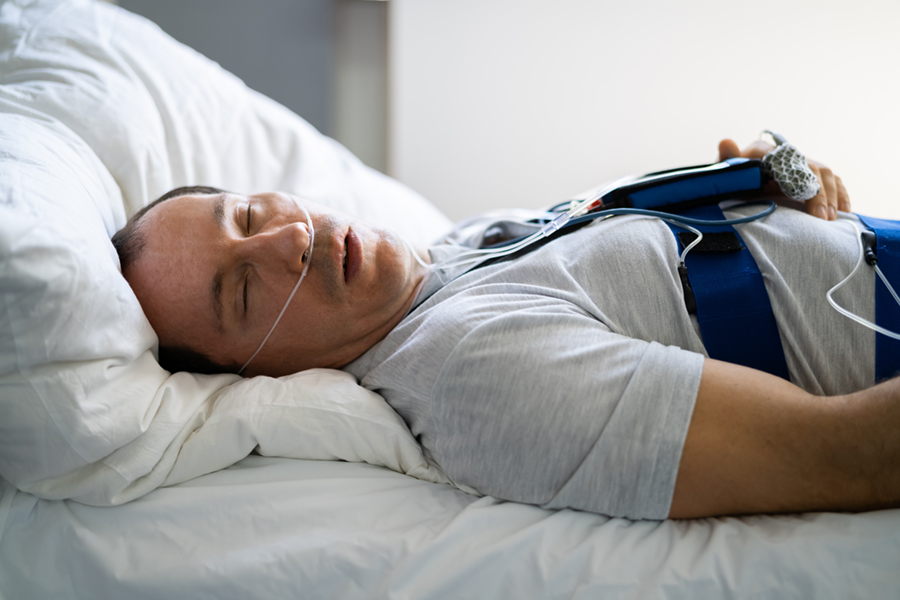Why Do I Need a Sleep Test?

You can suffer from sleep apnea but be unaware of it, like many people. You may have typical symptoms of sleep apnea that prompts you to seek medical help, or you may be alerted to the problem by a friend or family member. The correct sleep disorder diagnosis is essential to find the correct treatment.
Your evaluation for sleep disorders starts with a detailed history of your symptoms and a physical examination. But an exam, medical history and symptom review are not enough for doctors to make the definitive diagnosis that will determine the best treatment to improve your sleep and overall quality of life. This is where a sleep study or sleep apnea test comes in.
Obstructive sleep apnea in adults is considered a sleep-related breathing disorder.1 Home sleep apnea testing is designed to be a convenient way for your doctor to collect information about your sleep, identify breathing issues related to sleep apnea, and evaluate the severity of your condition. It combines an effective test for sleep apnea with convenience and comfort for the patient. You don’t have to travel to a sleep lab or spend the night away from home. A home test is also more cost effective and being covered more often by insurance.2
What to Expect with a Home Sleep Apnea Test?
Your doctor may provide you with equipment and instructions, or he may give you information to obtain the test in person or by mail. There are numerous sleep centers, home sleep study companies, and home sleep test businesses that provide the test for patients.
You’ll use a small, lightweight portable monitor with different types of sensors to collect measurements for oxygen saturation, heart rate, airflow, chest and abdominal movement, snoring time, and sleep position. The sensors attach to your body with Velcro, elastic, and sometimes stickers.3
Usually, you wear the equipment for 1-3 nights, depending on your doctor’s instructions.
Once your study is complete, the equipment will be returned to the diagnostic service company for the measurements to be processed and interpreted by a sleep physician. A report will be sent to your physician to discuss with you.
At this point, your doctor may need to request a laboratory sleep study (polysomnography) if
- your home sleep apnea test did not record enough data to make a diagnosis.
- the test results indicate that you do not have obstructive sleep apnea but it’s possible that you have another type of sleep disorder.4
Laboratory sleep studies measure additional factors that allow for detecting a wide variety of sleep disorders.3 Also, a monitored, lab sleep study is the only option for some individuals with certain pre-existing health considerations.2
After the Test, What’s Next?
With the combination of your symptom history, physical findings, and sleep test results, your doctor will now be able to sit down with you for a discussion of the available treatment options. The correct sleep disorder diagnosis will make it possible for you and your doctor to find the correct treatment.
Contact us for an evaluation.
References
- https://sleepfoundation.org/sleep-topics
- http://www.entnet.org/content/snoring-and-sleep-apnea
- http://www.sleepdisordersguide.com/article/basics/snoring-statistics-statistics-related-to-snoring-problems
- http://www.sleepdisordersguide.com/article/sleep-disorders/sleep-apnea-statistics-the-statistics-of-sleep-apnea

